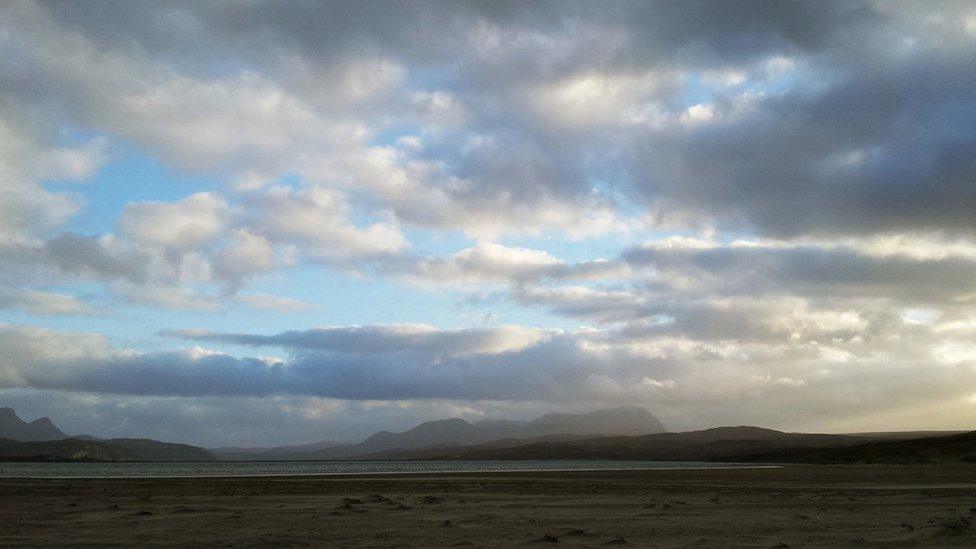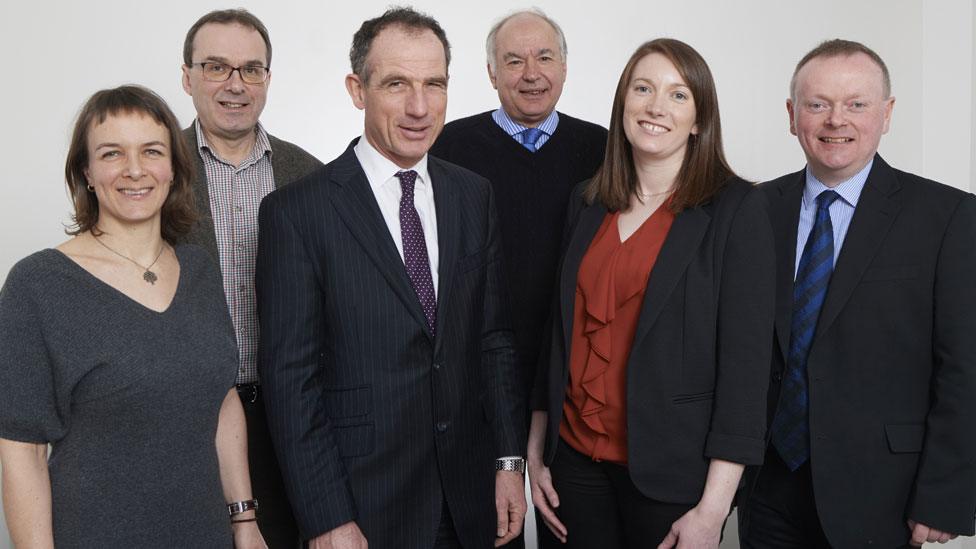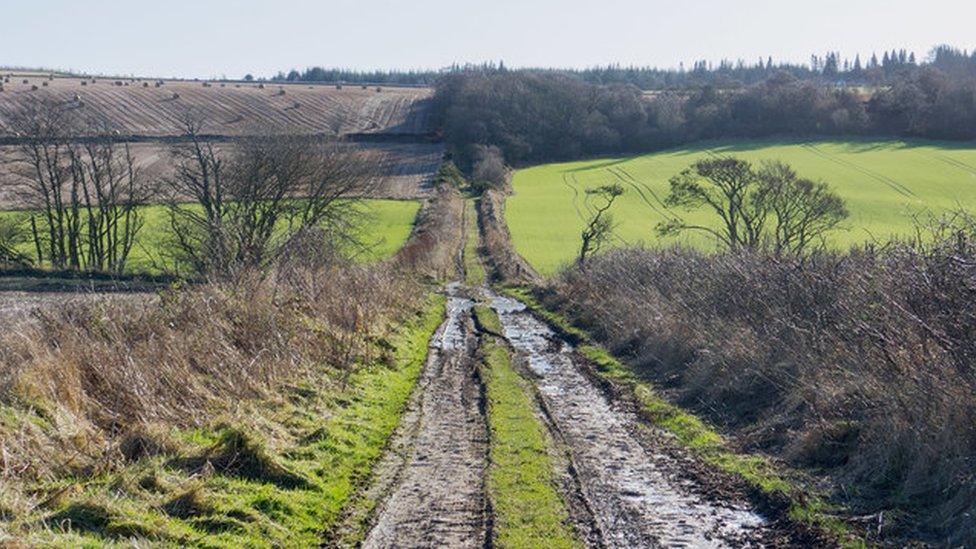Study into impact of land ownership in Scotland
- Published
- comments

A study into who owns Scotland's land and the impact that has on the people who live there is to be carried out by the new Scottish Land Commission (SLC).
It has been estimated that fewer than 500 people own half of all privately-owned land in Scotland.
That is one of the highest concentrations of land ownership in Europe.
The SLC study is one of a series of priorities being set out at its first conference in Dunfermline.
The commission is expected to make recommendations to ministers within 18 months, which could lead to even more significant changes in land law.
There is no definitive list of who owns what in Scotland and that inevitably leads to questions about transparency.
Analysis by land reform campaigner and now Green MSP Andy Wightman has estimated that half of the privately-owned land is in the hands of 432 people.
The newly formed Scottish Land Commission will try to establish whether such a small number of people holding so much is detrimental to society.
SLC chief executive Hamish Trench said: "Scotland does have an unusually concentrated land ownership pattern.
"We want to get behind some of the headline figures and understand what the impacts are, what the implications are of both scale and concentration in land ownership."

What is the Scottish Land Commission?
Was formally established and started its work in April this year
It is based in Inverness
The commission has five land commissioners, a tenant farming commissioner and support staff
It was set up as part of the Land Reform (Scotland) Act 2016 to review law and policy and make recommendations to the Scottish government

Buy it up
The question of who owns Scotland has been an area of contention for many years.
With so much land in so few hands, it has already led to changes in the law such as the community right to buy.
This has placed about 500,000 acres (202,000 hectares) into community ownership, about 2.5% of the total.
Until recently, Findhorn village on the Moray coast formed part of the vast Novar estate.
But when the laird decided to sell off sections he did not want, residents used land reform legislation to buy it up.
Frank Allan, chairman of the Findhorn Village Conservation Company, told BBC Scotland: "It's been absolutely crucial.
"Without the legislation we simply would not be where we are at the moment.
"The right to buy has allowed people in the village to make decisions on the future. It's given them empowerment."
'Headline figures'
The process of buying out the 2,125.4 acres (860 hectares) of Findhorn was done with the support of Community Land Scotland.
Policy director Peter Peacock said: "Scotland has got very, very unusual land ownership patterns with very few people owning vast amounts of land.
"That has big societal implications. It concentrates power in a few people's hands and it concentrates wealth."

Landowners like Jamie Williamson, from the Alvie Estate near Kincraig, argue that there is no problem with land ownership in Scotland.
His Highlands estate focuses on farming, fishing and shooting complimented by diversified businesses such as a zip line for tourists.
As laird, Mr Williamson believes the true power now lies with the urban population which makes up the bulk of voters.
He said: "A lot of landowners, farmers and foresters feel that they've been effectively disenfranchised.
"Decisions are being made by the urban population only seeing it as a place to recreate rather than from our point of view.
"What we're trying to do is produce the goods and services that society demand."
'Transparency and accountability'
Ministers have already stated that parliament will have failed if land ownership in Scotland is not diluted.
But with land ownership at stake, a right protected under the European Convention on Human Rights, navigating an acceptable path could prove difficult.
Malcolm Combe, a specialist in land law at the University of Aberdeen, said: "At the moment Scotland has a wholly unregulated land market, which means to say it doesn't really matter where you're from or where your company is based.
"Some people say that is absolutely fine and that allows for inward investment and this kind of thing. But there are some issues in terms of transparency and accountability."
The study will look in detail at those issues and is likely to make comparisons between Scotland and other similar countries.
- Published3 April 2017

- Published14 October 2016
